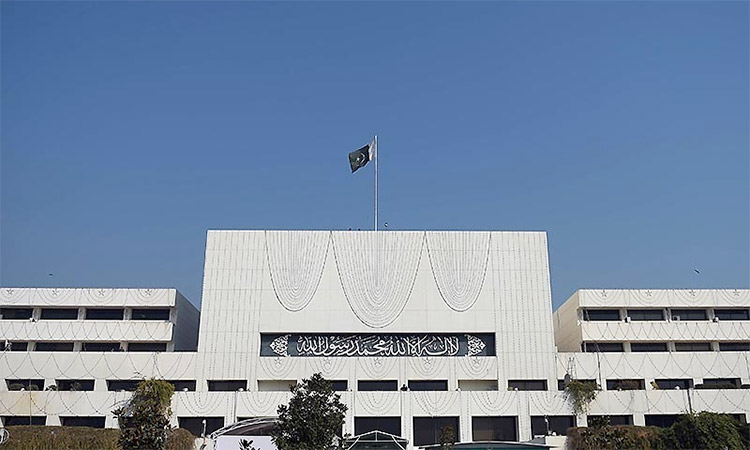Pakistan, amidst grappling with an economic crisis, faced a new challenge as the election results yielded a hung verdict. This triggered a period of political horse-trading as parties scrambled to gather leaders to demonstrate a majority.
Imran Khan, currently incarcerated and barred from participating in elections, made waves as independent candidates aligned with his Pakistan Tehreek-Insaf (PTI) party secured 102 seats in the general polls. However, PTI still trailed 31 seats behind the majority mark necessary for forming a government, with results from 8 seats pending announcement.
The Pakistan election commission attributed result delays to internet issues, hampering the transmission of results from polling stations. Despite being favored by the Army, Nawaz Sharif's Pakistan Muslim League (N) managed only 73 seats in the 266-seat assembly, while Bilawal Bhutto Zardari's Pakistan People's Party (PPP) won 54 seats.
The declarations of victory by both Imran Khan and three-time former Prime Minister Nawaz Sharif heightened uncertainty regarding the formation of the next government, crucial for addressing multiple challenges demanding swift policy action.
The strong performance of independent candidates supported by PTI underscores Imran Khan's enduring popularity among Pakistan's 241 million citizens, many of whom grapple with financial hardships amid Asia's fastest inflation.
Several independent candidates, backed by PTI, alleged electoral fraud and sought legal recourse in the high court. More candidates are expected to follow suit in the coming days, alleging vote rigging.
PTI is anticipated to initiate nationwide protests as final election results remain undisclosed. Gohar Khan, PTI chairman, urged all Pakistani institutions to respect the party's mandate and threatened peaceful protests outside government offices if complete poll results weren't released by the deadline.
In a bid to prevent Imran Khan's party from seizing the country's top office, Nawaz Sharif and Bilawal Bhutto are in discussions to form a coalition. However, even with combined efforts, they fall short of the majority by 6 seats, further complicating the political landscape.
These developments underscore the challenges and uncertainties faced by Pakistan as it navigates through a complex political and economic terrain.
Here are 10 key developments regarding the Pakistan election results:
-
Imran Khan, despite being incarcerated and ineligible to contest the elections, made headlines as independent candidates aligned with his party, Pakistan Tehreek-Insaf (PTI), secured 102 seats in the general polls.
-
However, PTI fell short by 31 seats of the required majority mark to form the government, with results for 8 seats still pending.
-
The Pakistan election commission cited internet issues as a cause for result transmission delays from polling stations, contributing to the prolonged announcement process.
-
Nawaz Sharif's Pakistan Muslim League (N), previously favored by the Army and predicted to dominate the polls, only managed to secure 73 seats in the 266-seat assembly. Bilawal Bhutto Zardari's Pakistan People's Party (PPP) won 54 seats.
-
Both Imran Khan and Nawaz Sharif declared victory, intensifying uncertainty regarding the formation of the next government amidst pressing challenges requiring prompt policy responses.
-
The strong performance of independent candidates aligned with PTI underscores Imran Khan's enduring popularity among Pakistan's 241 million citizens, many of whom struggle amid soaring inflation rates.
-
Allegations of electoral fraud emerged from several independent candidates supported by PTI, prompting legal action in the high court. Additional candidates are expected to follow suit, alleging rigged votes.
-
PTI is anticipated to initiate nationwide protests due to delayed final election results.
-
Gohar Khan, PTI chairman, urged all Pakistani institutions to respect the party's mandate. He warned of peaceful protests outside government offices if complete poll results were not disclosed by the deadline.
-
In a bid to prevent Imran Khan's party from seizing the country's top office, Nawaz Sharif and Bilawal Bhutto are engaging in discussions to form a coalition. However, even with combined efforts, they fall short of the majority by six seats.








 OpinionExpress.In
OpinionExpress.In















Comments (0)